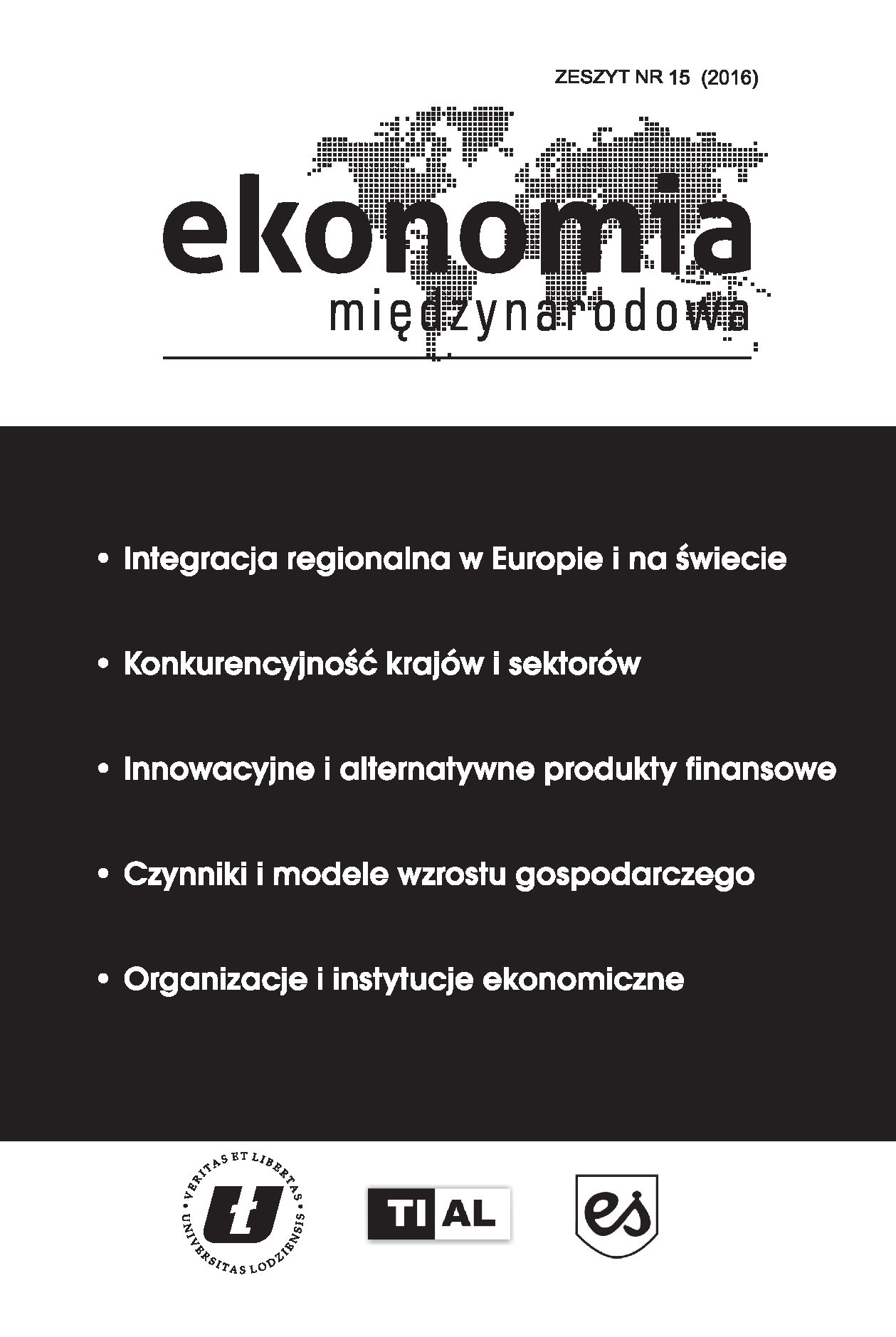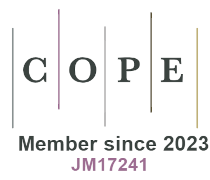Changes on Commodity Markets and Regulation in the European Union
DOI:
https://doi.org/10.18778/2082-4440.15.02Keywords:
commodity markets, surveillance policies, European Union regulations, financialisationAbstract
Commodity markets are important for the shape of the world economy and have experienced numerous structural changes over the span of the last few decades. Prices became more volatile as more and more financial investors began to speculate on commodity markets. Such a process combined with other crucial factors led to market abuses, decreasing the transparency of trade, and excessive speculation. These issues intensifiedand were mostly observed during the subprime mortgage crisis and in the period straight after it. The policymakers around the globe made an effort to diminish those effects and introduced new a policy framework regarding commodity markets. The aim of this paper is to define, present and review the current works and actions taken by the European Union policymakers. This has been done based on an analysis of the new legislation and its possible results.
References
Alquist R., Coibion O. (2013), The comovement in commodity prices: sources and implications, IMF Working Paper, WP/13/140.
Google Scholar
DOI: https://doi.org/10.5089/9781484378144.001
Bicchetti D., Maystre N. (2012), The synchronized and long-lasting structural change on commodity markets: evidence from high frequency data, MPRA Paper No. 37486, Monachium.
Google Scholar
DOI: https://doi.org/10.2139/ssrn.2046584
Cheng I-H., Xiong W. (2013), The Financialization of Commodity Markets, NBER Working Paper No. 19642.
Google Scholar
Financial markets regulatory reform in the EU: State of play (MiFiD, MAD, EMIR), (2012), Directorate General Internal Market and Services, for the Expert Group on Agricultural Commodity Derivatives and Spot Markets, Komisja Europejska, http://ec.europa.eu/agriculture/cereals/commodity-expert-group/index_en.htm.
Google Scholar
Epstein G.A., 2005, Financialization and the World Economy, Edward Elgar Publishing Limited, Cheltenham.
Google Scholar
Europejski Urząd Nadzoru Giełd i Papierów Wartościowych – EUNGiPW (2014), Esma.europa.eu, www.esma.europa.eu/pl/page/European-Market-Infrastructure-Regulation-EMIR.
Google Scholar
Falkowski M. (2011), Financialization of Commodities, Contemporary Economics, Vol. 5, Issue 4, pp. 4–17.
Google Scholar
Institute of International Finance (2011), IIF Commodities Task Force Submission to the G20: Financial, Investment in Commodity Markets: Potential Impact on Commodity Prices and Volatility, Waszyngton.
Google Scholar
Krätschell K., Schmidt T. (2012), Long-run trends or short-run fluctuations – what establishes the correlation between oil and food prices?, Ruhr Economic Paper, No. 357.
Google Scholar
Krippner G.R. (2005), The financialization of the American economy, Socio-Economic Review, No. 3.
Google Scholar
DOI: https://doi.org/10.1093/SER/mwi008
Le Pen Y., Sevi B.(2013), Futures trading and the excess comovement of commodity prices, Aix Marseille School of Economics Working Papers, nr 01/2013.
Google Scholar
DOI: https://doi.org/10.2139/ssrn.2191659
Masters M, (2008). Testimony of Michael W. Masters before the Committee on Homeland Security and Governmental Affairs, Senat Stanów Zjednocznych, 20.05.2008.
Google Scholar
Międzynarodowy Fundusz Walutowy – MFW(2014), IMF.org, www.imf.org/external/np/res/commod/index.aspx.
Google Scholar
Organizacja Narodów Zjednoczonych do spraw Wyżywienia i Rolnictwa – FAO (2009), The state of agricultural commodity markets: High food prices and the food crisis – experiences and lessons learned, Rzym.
Google Scholar
Roxburgh C., Lund S., Piotrowski J. (2011), Mapping global capital markets 2011, McKinsey Global Institute, Nowy Jork.
Google Scholar
Silvennoinen A., Thorp S. (2010), Financialization, Crisis and Commodity Correlation Dynamics. Research Paper 267, Quantitative Finance Research Centre, University of Technology, Sydney.
Google Scholar
Staritz C., Küblböck K. (2013), Re-regulation of commodity derivative markets – Critical assessment of current reform proposals in the EU and the US, ÖFSE Working Paper No. 45, Wiedeń.
Google Scholar
Stockhammer E. (2010), Financialization and the Global Economy, PERI Working Paper 240, Amherst.
Google Scholar
Sutcliffe C. (2013), wystąpienie ESMA Senior Officer Secondary Markets dla Expert Group on Agricultural Commodity Derivatives and Spot Markets, europa.eu, http://ec.europa.eu/agriculture/cereals/commodity-expert-group/2014-02-14/esma_en.pdf.
Google Scholar
Światowa Organizacja Handlu – WTO (2013), stat.wto.org, http://stat.wto.org/Home/WSDBHome.aspx?Language.
Google Scholar
Tang K., Xiong W. (2012), Index investment and the financialization of commodities, Financial Analysts Journal, Vol. 68, No. 6, CFA Institute.
Google Scholar
DOI: https://doi.org/10.2469/faj.v68.n6.5
UE 2004, Dyrektywa 2004/39/WE Parlamentu Europejskiego i Rady z dnia 21 kwietnia 2004 r. w sprawie rynków instrumentów finansowych.
Google Scholar
UE 2014, Dyrektywa Parlamentu Europejskiego i Rady 2014/65/UE z dnia 15 maja 2014 r. w sprawie rynków instrumentów finansowych.
Google Scholar
UE 2014a, Dyrektywa Parlamentu Europejskiego i Rady 2014/57/UE z dnia 16 kwietnia 2014 r. w sprawie sankcji karnych za nadużycia na rynku (dyrektywa w sprawie nadużyć na rynku).
Google Scholar
UNCTAD (2011). Price Formation in Financialized Commodity Markets: The Role of Information. UNCTAD/GDS/2011/1, Nowy Jork i Genewa.
Google Scholar
UNCTAD (2012), Excessive commodity price volatility: macroeconomic effects on growth and policy options. Contributions to the G20, Commodity Markets Working Group. Genewa.
Google Scholar
Yahoo (2014), finance.yahoo, https://finance.yahoo.com/.
Google Scholar
Downloads
Published
How to Cite
Issue
Section
License

This work is licensed under a Creative Commons Attribution-NonCommercial-NoDerivatives 4.0 International License.









